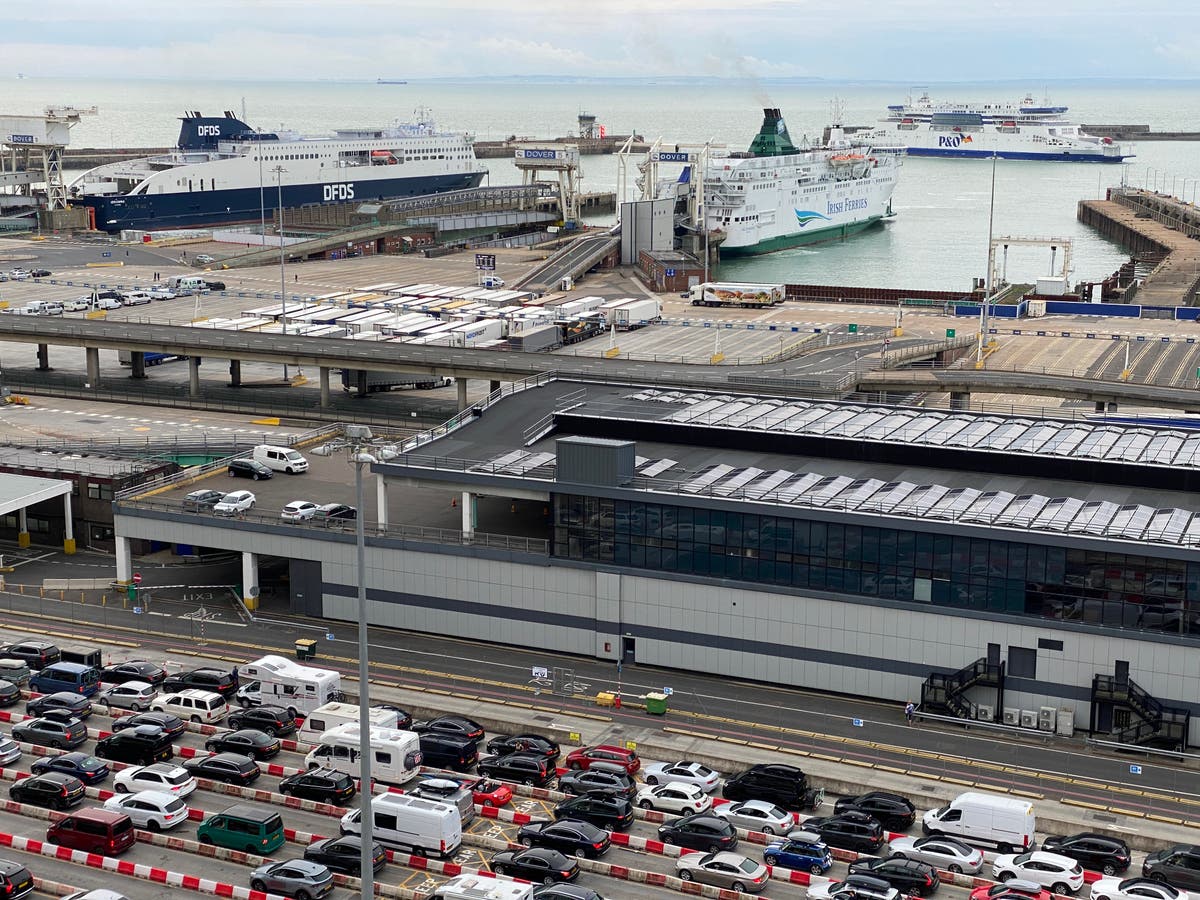This website uses cookies so that we can provide you with the best user experience possible. Cookie information is stored in your browser and performs functions such as recognising you when you return to our website and helping our team to understand which sections of the website you find most interesting and useful.

The biggest summer getaway since 2019 is underway, with millions of British holidaymakers on the move.
The busiest day for international travellers since before the Covid pandemic has begun relatively smoothly, with delays for ferry passengers at Dover well below the 150-minute worst-case waits forecasted by the port authorities.
The four hours between 6am and 10am were expected to see the highest number of cars of the year, with over 3,100 expected to turn up for ferries to Calais and Dunkirk. Overall, travel association Abta predicts more than two million UK travellers will head abroad over the weekend.
This time last year, queues built up swiftly as families heading abroad encountered tougher border checks as a consequence of Brexit. The port of Dover – squeezed between the White Cliffs and the Channel – became a hard EU frontier, with French border officials required to check and stamp every passport.
Queue times have hit 90 minutes in Dover
(Simon Calder)
Additional border posts and a coach processing centre away from the Eastern Docks have eased the pressure, with 10,000 drivers and passengers passing through by 7am on Saturday. At 11.30am, the leading ferry firm DFDS tweeted: “Please allow 120 minutes to complete border and check-in controls on arrival.”
Port authorities are urging motorists not to turn up more than three hours ahead, which would add to congestion. Any motorists who are delayed will be accommodated on the next available sailing.
But motorists who successfully cross the Channel could find their problems only beginning. The French highway authorities are warning of severe traffic congestion – “circulation très difficile” – on the autoroutes south from Paris all day on Saturday.
On the roads of the UK, it is expected to be the busiest weekend of the year so far for holidaymakers, with the RAC predicting peak congestion between midday and 6pm.
(Simon Calder)
The M60 Manchester orbital motorway has been singled out for the worst jams, anticlockwise between Junction 14 for St Helen’s and Junction 11 for Eccles. The M5 motorway south of Bristol and London’s M25 are also likely to be extremely busy.
Across England, the roads are expected to be extra busy due to the latest rail strike by members of the RMT union. It has caused thousands of train cancellations across England. Train drivers belonging to the Aslef union are on the last day of their latest overtime ban.
Both unions are involved in a long and bitter dispute over pay, jobs and working conditions.
Trains are running on key intercity lines and around big cities, but most rail firms are telling passengers: “Only travel if absolutely necessary.”
Motorists have been warned the M5 and the M25 are likely to be extremely busy
(PA)
Services on most lines will end around 7pm this evening, with knock-on disruption predicted for Sunday morning.
A planned strike by RMT members working for the London Underground, which would have shut down almost all of the Tube network between Sunday 23 July and Friday 28 July, was called off 36 hours before it was due to strike after progress in talks.
The final day of the current RMT national rail action is scheduled for Saturday 29 July. Two days later, the next six-day overtime ban for train drivers belonging to Aslef begins.
Thousands of airline passengers due to arrive in the UK on Friday evening experienced long delays. It was the busiest day for the skies of Europe since 2019, with over 35,000 flights.
Pressure on air-traffic controllers built up during the day, with many arrivals to Gatwick and Manchester airports an hour or two behind schedule. One Tui flight from Marrakech to Gatwick diverted to Stansted.



 Africana55 Radio
Africana55 Radio 
